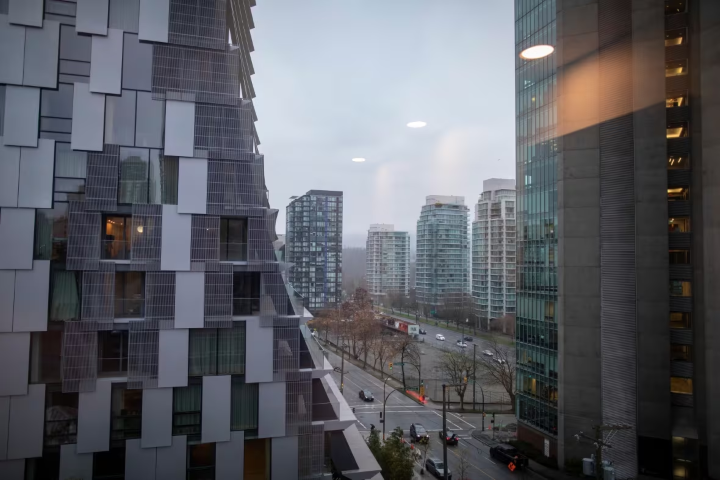
The prohibition on the Purchase of Residential Property by Non-Canadians Act was meant to bar non-citizens, non-permanent residents, and foreign-controlled companies from buying Canadian property as an investment, but critics say there are so many exemptions that the ban doesn't make much of a difference. (Ben Nelms/CBC).
A year after it was introduced, the foreign buyers ban hasn't helped lower home prices, critics say.
Kris Wallace and Andy Ali of Vancouver express frustration in their quest for a larger condo, seeking more room for their family amid soaring real estate and rental costs. Despite a federal foreign buyer ban implemented a year ago, their 26-year-old daughter still resides with them, underscoring the ongoing housing challenges in the city.
The Prohibition on the Purchase of Residential Property by Non-Canadians Act, enacted in 2022, imposed a two-year ban effective January 1, preventing non-citizens, non-permanent residents, and foreign-controlled companies from investing in Canadian property. However, Wallace contends that the ban has not significantly benefited her family.
Critics argue that the foreign buyer ban, ostensibly aimed at enhancing housing affordability for Canadians, was laden with exemptions and is viewed more as a political move. Housing Minister Sean Fraser's office declined an interview request but highlighted the government's collaboration with cities to facilitate the construction of over 250,000 new homes in the next decade.
The Canadian Mortgage and Housing Corporation (CMHC) notes that data for 2023 from the Canadian Housing Statistics Program, evaluating the ban's impact, is not yet available. Despite the ban, housing remains unaffordable for many, prompting calls for alternative strategies for fostering home ownership.
Deputy Prime Minister Chrystia Freeland defends the ban, stating that it is making a difference by preserving housing for residents. However, critics argue that the ban's effectiveness is limited due to numerous exemptions, including students, first-time buyers, and properties under $500,000.
Brendon Ogmundson, Chief Economist for the B.C. Real Estate Association, dismisses the foreign buyer ban as more of a political move than a robust economic or housing policy. Meanwhile, housing prices in Toronto and Vancouver remain high, with average prices of $1.1 million and $1.2 million, respectively.
While acknowledging the ban's impact on luxury home prices initially, Professor Thomas Davidoff from the University of British Columbia's Sauder School of Business attributes the subsequent rise in affordable housing prices to soaring interest rates causing an economic slowdown.
Success in cooling housing markets has been attributed to speculation and vacancy taxes in British Columbia and Ontario. However, critics argue that Canada's ban was "full of holes," suggesting that tougher measures, akin to those in Hong Kong and Singapore, may be more effective.
Andy Yan, Director of the City Program at Simon Fraser University, characterizes Canada's ban as "more like cheesecloth than duct tape," advocating for more stringent measures. Singapore's success, with an 89% homeownership rate in 2022, is attributed to aggressive speculation taxes and a robust public housing stock.
Despite the challenges, Canada's housing market grapples with stagnant wages, a lack of affordable housing, and a legacy of attracting global property investors due to weak regulations. Some experts suggest that learning from success stories like Singapore could offer insights into solving the housing affordability problem in Canadian cities.















